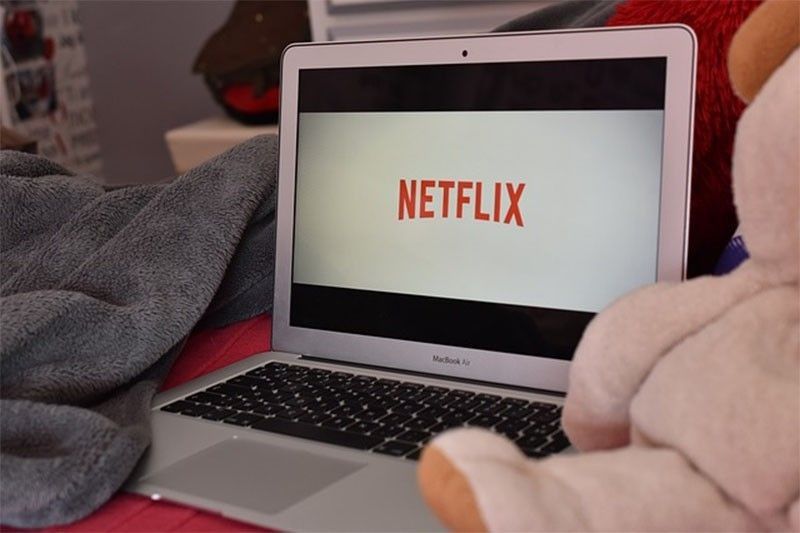House panel wants 12% VAT on Netflix

MANILA, Philippines — The House ways and means committee yesterday approved a bill seeking to impose value-added tax (VAT) on popular digital streaming service Netflix and other major digital service providers to generate revenues to combat the coronavirus disease pandemic.
The panel chaired by Albay Rep. Joey Salceda approved the substitute bill to the proposed Digital Economy Taxation Law that imposes 12-percent VAT on good and services exceeding the P3-million threshold.
But Salceda, principal author of the bill, clarified that the measure should not count as a new tax as it only closes loopholes for large foreign corporations.
“We imposed no new taxes. We’re simply clarifying that they should be VATed. In general, if you sell, you pay VAT, unless you fall under the exemptions for small businesses,” he explained during the virtual hearing.
He stressed that small online businesses are not covered by the measure.
Salceda revealed that his committee has already studied the impact of the committee report on incomes.
“In other words, this will not be felt by the most vulnerable households, and will be felt only very mildly by the richest households, but it will certainly generate new revenues for our COVID-19 response,” he added.
Salceda earlier said the measure could raise about P29.1 billion in new annual revenues to help the country cope with the pandemic.
“Seventy-seven percent of the revenues will come from upper middle-income families and above. The effective income tax rate on the bottom 20 percent of the population is 0.01 percent, and that progresses, until 0.09 percent for the highest income classes. This is the mildest imposition you can make when the country is in severe need of new revenues. And it covers a mostly discretionary spending,” he said.
Salceda explained that only 0.04 percent of all revenues from this proposal will come from the bottom 20 percent of the population.
“If your sales are below P3 million, you are exempt from paying or filing VAT. If your net income as a sole proprietor is below 250,000, you are exempt from paying and filing income taxes. So, the small Facebook online seller will not be taxed, I guarantee you,” Salceda explained.
He said the measure also does not cover barter trading.
“You will remember that I struck down the discussion on taxing barter trades online. I assured you that it will not be done under my watch. So, this committee report has nothing on online barter trades, and I will never touch it as chair of the tax committee,” he said.
Under the approved bill, VAT will be imposed on Netflix, Spotify and other foreign corporations for their digital services.
It defines digital service provider as “an entity which provides digital service or goods to a buyer through an online platform for purposes of buying and selling of goods or services or by making transactions for the provision of digital services on behalf of any person.”
Digital service providers also include “a third party that acts as a conduit for goods or services offered by a supplier to a buyer and receives commission therefor; a platform provider for promotion that uses the internet to deliver marketing messages to attract buyers; a host of online auctions conducted through the internet, where the seller sells the product or service to the person who bids the highest price; a supplier of digital services to a buyer in exchange for a regular subscription fee over the usage of the said product or service; and a supplier of electronic and online services that can be delivered through an information technology infrastructure, such as the internet.”
‘Borrow more’
Senate President Pro Tempore Ralph Recto said yesterday that the government should borrow more to fund its programs to fight the COVID-19 pandemic and aid distressed sectors as revenues are expected to plunge further.
Recto made the call as the Senate passed on Tuesday the proposed Bayanihan to Recover as One Act or Bayanihan 2, which he said has an insufficient funding of P140 billion due to the cap placed by the Department of Finance.
He also disputed claims by economic managers that the country must not exceed its debt-to-gross domestic product ratios.
Recto said he sought a much higher funding for the measure “so that more jobless people can be given relief, more businesses can be rescued, more overseas Filipino workers could be repatriated, and more resources can be sent to our medical frontlines.”
Meanwhile, a special House panel has approved a bill providing more assistance by government financial institutions to help micro, small and medium enterprises (MSMEs) recover from effects of the pandemic.
In a hearing last Tuesday, the Defeat COVID-19 Committee (DCC) passed on first reading the substitute bill for the proposed Government Financial Institutions Unified Initiatives to Distressed Enterprises for Economic Recovery Act (GUIDE) previously approved by the banks and financial intermediaries committee.
The measure sponsored by Quirino Rep. Junie Cua seeks to expand the loan assistance program, rediscounting and other credit accommodation facilities of government financial institutions for MSMEs affected by the health crisis.
It was approved by the DCC panel presided by Majority Leader Martin Romualdez in just 30 minutes of deliberations.
The bill was set for deliberations and second reading approval in plenary session yesterday afternoon.
“We really have no choice but to fast-track the approval of these vital measures if we want to spare millions of jobs threatened by this global health emergency,” Romualdez stressed.
He explained that the community quarantine measures imposed by the government since March have gravely affected businesses in the country.
The GUIDE bill specifically seeks to tap the Philippine Guarantee Corp. (PGC) to expand its guarantee program for MSMEs by increasing the maximum loan guarantee coverage per borrower and reducing guarantee fees. To implement this, the measure mandates the government to increase its subscription to PGC’s authorized capital stock by an additional P20 billion.
The bill also directs the Development Bank of the Philippines (DBP) to expand its loan program for qualified MSMEs affected by COVID-19, provided that these enterprises are engaged in infrastructure, services and/or manufacturing businesses. DBP’s authorized capital stock will be expanded to P100 billion from P35 billion to accommodate capital infusion.
Under the proposed measure, Land Bank of the Philippines is also mandated to expand its loan program to MSMEs engaged in the agribusiness value chain. Both DBP and Landbank are allowed to rediscount loans to eligible enterprises.
For this purpose, the measure will appropriate P55 billion to infuse additional capital to PGC (P5 billion), Landbank (P35 billion) and DBP (P15 billion).
The proposed measure also authorizes the Landbank and DBP to create a special holding company to be named Accelerate Recovery to Intensify Solidarity and Equity (ARISE) to provide liquidity by being a “major player” in the financial and capital markets.
To ensure effective implementation, the bill grants tax exemption and reduced registration and transfer fees on the following qualified transactions: those relating to the loan assistance program, rediscounting and other programs of DBP and Landbank, including special mode of payment (dacion en pago) by the borrower or a third party; investment transactions of the special holding company and its subsidiaries; and sales or transfers of rediscounted loans/other credit accommodations, subject to a limited three-year entitlement period.
The bill also exempts any procurements of the PGC, Landbank, DBP and the special holding company from the procurement law for three years.
The special holding company will also be exempted from the government-owned and controlled corporations (GOCC) Governance Act of 2011 and the Philippine Competition Act for three years. - Paolo Romero
- Latest
- Trending






























